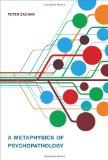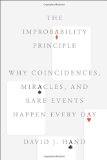June 2, 2014

How Not to Be Wrong: The Power of Mathematical Thinking by Jordan Ellenberg (Penguin Press, 2014)
(kindle ed.), (amazon.co.uk), (UK kindle ed.)
Book description from the publisher:
The Freakonomics of math—
a math-world superstar unveils the hidden beauty and logic of the world and puts its power in our hands
The math we learn in school can seem like a dull set of rules, laid down by the ancients and not to be questioned. In How Not to Be Wrong, Jordan Ellenberg shows us how terribly limiting this view is: Math isn’t confined to abstract incidents that never occur in real life, but rather touches everything we do—the whole world is shot through with it.
Math allows us to see the hidden structures underneath the messy and chaotic surface of our world. It’s a science of not being wrong, hammered out by centuries of hard work and argument. Armed with the tools of mathematics, we can see through to the true meaning of information we take for granted: How early should you get to the airport? What does “public opinion” really represent? Why do tall parents have shorter children? Who really won Florida in 2000? And how likely are you, really, to develop cancer?
How Not to Be Wrong presents the surprising revelations behind all of these questions and many more, using the mathematician’s method of analyzing life and exposing the hard-won insights of the academic community to the layman—minus the jargon. Ellenberg chases mathematical threads through a vast range of time and space, from the everyday to the cosmic, encountering, among other things, baseball, Reaganomics, daring lottery schemes, Voltaire, the replicability crisis in psychology, Italian Renaissance painting, artificial languages, the development of non-Euclidean geometry, the coming obesity apocalypse, Antonin Scalia’s views on crime and punishment, the psychology of slime molds, what Facebook can and can’t figure out about you, and the existence of God.
Ellenberg pulls from history as well as from the latest theoretical developments to provide those not trained in math with the knowledge they need. Math, as Ellenberg says, is “an atomic-powered prosthesis that you attach to your common sense, vastly multiplying its reach and strength.” With the tools of mathematics in hand, you can understand the world in a deeper, more meaningful way. How Not to Be Wrong will show you how.
Google Books preview:
See also: Author’s website
Comments (0)
- new books,psychology,reality
March 25, 2014

A Metaphysics of Psychopathology by Peter Zachar (MIT Press, 2014)
(kindle ed.), (amazon.co.uk), (UK kindle ed.)
Book description from the publisher:
In psychiatry, few question the legitimacy of asking whether a given psychiatric disorder is real; similarly, in psychology, scholars debate the reality of such theoretical entities as general intelligence, superegos, and personality traits. And yet in both disciplines, little thought is given to what is meant by the rather abstract philosophical concept of “real.” Indeed, certain psychiatric disorders have passed from real to imaginary (as in the case of multiple personality disorder) and from imaginary to real (as in the case of post-traumatic stress disorder). In this book, Peter Zachar considers such terms as “real” and “reality” — invoked in psychiatry but often obscure and remote from their instances — as abstract philosophical concepts. He then examines the implications of his approach for psychiatric classification and psychopathology. Proposing what he calls a scientifically inspired pragmatism, Zachar considers such topics as the essentialist bias, diagnostic literalism, and the concepts of natural kind and social construct. Turning explicitly to psychiatric topics, he proposes a new model for the domain of psychiatric disorders, the imperfect community model, which avoids both relativism and essentialism. He uses this model to understand such recent controversies as the attempt to eliminate narcissistic personality disorder from the DSM-5. Returning to such concepts as real, true, and objective, Zachar argues that not only should we use these metaphysical concepts to think philosophically about other concepts, we should think philosophically about them.
Google Books preview:
Comments (0)
- new books,philosophy of mind,psychology,reality
February 14, 2014

The Improbability Principle: Why Coincidences, Miracles, and Rare Events Happen Every Day by David J. Hand (Scientific American/Farrar, Straus & Giroux, 2014)
(kindle ed.), (amazon.co.uk), (UK kindle ed.)
Book description from the publishers:
In The Improbability Principle, the renowned statistician David J. Hand argues that extraordinarily rare events are anything but. In fact, they’re commonplace. Not only that, we should all expect to experience a miracle roughly once every month.
But Hand is no believer in superstitions, prophecies, or the paranormal. His definition of “miracle” is thoroughly rational. No mystical or supernatural explanation is necessary to understand why someone is lucky enough to win the lottery twice, or is destined to be hit by lightning three times and still survive. All we need, Hand argues, is a firm grounding in a powerful set of laws: the laws of inevitability, of truly large numbers, of selection, of the probability lever, and of near enough.
Together, these constitute Hand’s groundbreaking Improbability Principle. And together, they explain why we should not be so surprised to bump into a friend in a foreign country, or to come across the same unfamiliar word four times in one day. Hand wrestles with seemingly less explicable questions as well: what the Bible and Shakespeare have in common, why financial crashes are par for the course, and why lightning does strike the same place (and the same person) twice. Along the way, he teaches us how to use the Improbability Principle in our own lives—including how to cash in at a casino and how to recognize when a medicine is truly effective.
An irresistible adventure into the laws behind “chance” moments and a trusty guide for understanding the world and universe we live in, The Improbability Principle will transform how you think about serendipity and luck, whether it’s in the world of business and finance or you’re merely sitting in your backyard, tossing a ball into the air and wondering where it will land.
Google Books preview:
Comments (0)
- new books,reality





